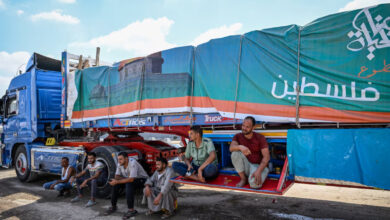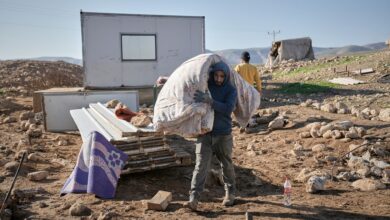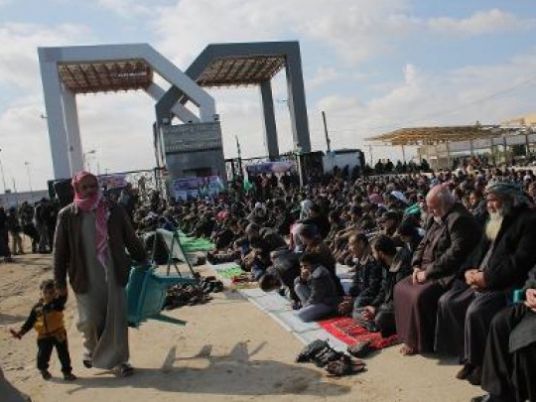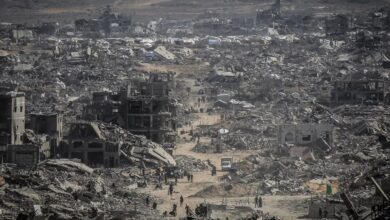You may or may not have heard that a number of Palestinian prisoners in Israeli jails have been on a continuous hunger strike for the past 18 days. The strike comes in protest against the Israeli prison administration’s practices, which include solitary confinement, strip-searches and other arbitrary policies such as prohibiting children from hugging their parents during visiting hours.
Some may think these demands are not essential or important; however, they give the prisoners what they need in order to withstand the hardships of prison and what their parents and children outside need in order to bear life without their loved ones.
According to various statistics, there are currently over 6000 Palestinian prisoners in Israeli jails. The prisoners, who come from the Palestinian territories and some other Arab countries, and who are of various political and religious orientations, are mostly political prisoners.
Over the past 44 years, over 650,000 Palestinians have been imprisoned at some point, constituting approximately 20 percent of the total Palestinian population and 40 percent of all male Palestinians in the occupied Palestinian territories.
These figures explicate the need for popular support for prisoner rights, since almost every Palestinian knows or is related in one way or another to a prisoner or may at some time have even been a prisoner him or herself.
During the past few weeks, and during what has been dubbed as the “battle of empty stomachs,” popular Palestinian media outlets have been bombarded with messages supporting the prisoners and their demands. Over time, this support has escalated to include strikes, protests and sit-ins demanding that international organizations support the prisoners' rights. This has been followed by further escalation in the form of hunger strikes organized in various Palestinian and Israeli areas, including Ramallah, Haifa and Nazareth. A number of rallies were also organized in which protesters headed to accessible Israeli prisons, such as the Ofer prison near Ramallah, where their protests were met with tear gas, rubber bullets and batons.
It is important to understand the popular nature of this campaign. Although neither local nor regional official media outlets covered the news concerning this movement, popular media outlets succeeded in gaining local, Arab and international support for the prisoner rights, as well as in mobilizing the Palestinian masses into joining the movement. This was evident yesterday, with the comprehensive commercial strike in a number of Palestinian cities. This is quite a remarkable outcome, as the Palestinian masses did not wait for a political or organizational decision in order to move, but rather every individual felt the need to act.
This bipartisan Palestinian movement puts Palestinian political parties and their leaders in an awkward position. It highlights the lack of confidence Palestinians have in how quickly and effectively Palestinian parties can take action on issues such as these. The Palestinian people are no longer satisfied with the usual belated seminars; they now expect a popular uprising and direct action on the ground following any incident.
The political parties and groups in Palestine are well aware of this awkward situation they are now facing, and some have already begun taking action in order to regain the public’s confidence. Unfortunately, they have failed to stray from their usual responses and their actions have amounted to nothing more than unsatisfactory attempts by some of their icons to appear as national heroes. The festivals held in support of these icons, whose posters have filled the streets, do not in any way compare to the credibility of popular sentiment.
This bipartisan movement may still lack in maturity and may be merely associated with issues of personal interest, such as the plight of prisoners; however, all political indicators show a lack of confidence in party actions at a time when popular media is influencing the masses, both locally and regionally, more than ever. This will definitely lead to a restructuring of the representation of the Palestinian people, which will become more inclusive and more in tune with the people's sentiment.
Hanna Kreitem is a Palestinian activist in the field of digital freedoms




